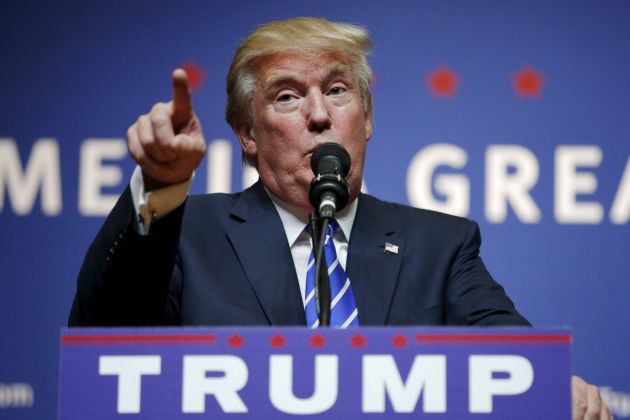GlobalSmackDown: Uncertainty swirls as President-elect Trump takes White House
November 15, 2016
Candidate Donald Trump has officially become President-elect Trump. The results of the election have come as a shock domestically and internationally as many leading media outlets favored former Secretary of State Clinton by a significant margin.
As the election unfolded and Trump started to have a stronger-than-expected showing in battleground states, markets reacted to the prevailing sense of uncertainty. They’ve since rallied and the dollar has rebounded from an initial dip, increasing 2 percent against a basket of currencies. However, the strength of the dollar has put pressure on other currencies and developing nations. The U.S. dollar has strengthened 14 percent against the Mexican peso, 8 percent against the Brazilian real and 2 percent against the Indonesian rupiah. A week following the final election results, $2.4 billion in stocks and bonds had exited emerging markets.
This sense of uncertainty has now begun to permeate public discourse as American citizens and the global community try to determine which of Trump’s campaign statements were hyperbole and which ones will become policy. These questions have only come under further scrutiny as the President-elect is the only president to never have occupied public office or served in the military. Because many foreign policy actions require less Congressional action than other aspects of the presidency, Trump will have greater flexibility to act as he sees fit. This also comes at a time when the powers of the executive office have begun to expand beyond historical norms.
The global response to Trump’s election has varied. Steadfast allies of the United States — Germany, France, Britain, Japan—have all expressed a somewhat lukewarm willingness to work with the new administration, citing deep democratic ties and shared national values.
However, some of the more complex geopolitical relationships will be more difficult to manage.
Regarding the Syrian conflict, Trump has suggested his approach would diverge significantly from the Obama administration. Whereas President Obama’s approach has been to thwart ISIS via support for rebel groups, an approach former Secretary Clinton indicated a willingness to continue, Trump says he would prefer to work with Russia, stating he believes rebels are unreliable, with the sole focus of defeating ISIS. The results of this election have been met with support from the Assad regime.
The expressed willingness to work with Russia doesn’t stop with the Syrian conflict. According to everything we’ve seen and heard, Trump admires Vladimir Putin for, what he believes are strong leadership skills. However, some have also speculated that the support has been feigned and that Trump might have felt compelled, from a tactical standpoint, to reciprocate the affection that Putin showed him. However, officials from the Kremlin have received the results with excitement and look forward to mending the U.S.—Russia relations.
But Trump’s language on NATO and, by extension, Russia is disconcerting. One of Trump’s principle issues with NATO is that most member states don’t contribute the expected portion of their relative GDPs.
Because this forces the U.S. to shoulder an unduly large financial burden, Trump has said the U.S. should reconsider how they would respond in the event of an attack. In other words, according to Article 5 of the NATO pact, if one member state is attacked or invaded, all other member states must respond on behalf of the NATO ally. But, if the U.S. fails to act according to this expectation, it threatens the integrity of the alliance and plays into Russia’s efforts to undermine NATO.
Sino-U.S. relations, like those with Russia, are likely to be at a standstill while the respective nations seek to study and understand each other’s approach to foreign policy. The Sino-American relationship is unquestionably the most important relationship in the world today.
Despite the harsh rhetoric Trump directed towards Beijing, Chinese President Xi Jinping offered a diplomatic response and mild congratulations. For the first time in generations, the two superpowers are nearly on equal standing with each other. A harmonious relationship between the two will be essential in balancing a world order and President Trump will be tasked with arriving at an understanding of the Chinese world view and how they believe problems should be solved.
The immediate future of U.S. foreign policy will be in a transitional stage as the nationalistic, U.S.-first, platform Trump campaigned on is implemented.
*Global Smackdown is a 23-minute multimedia forum facilitated by Dr. Tim Horner every Thursday at 2 p.m. in Corr 103.


